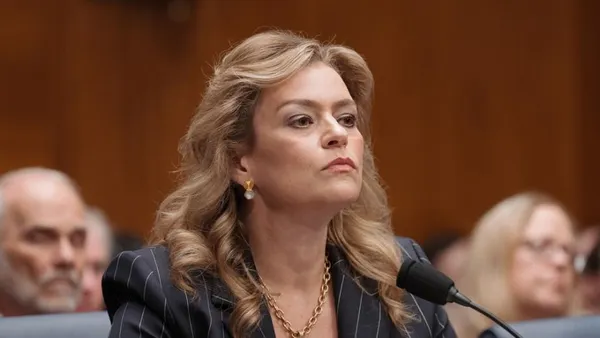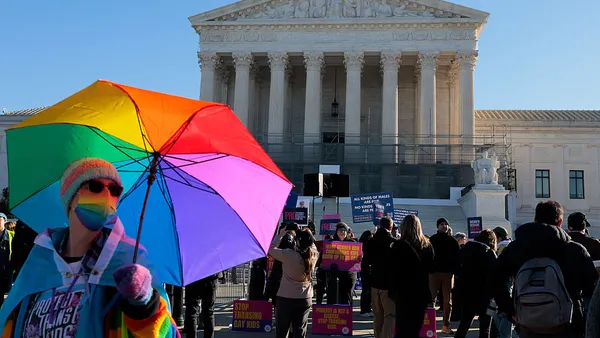Dive Brief:
- Brown University President Christina Paxson on Wednesday rejected the Trump administration’s invitation to sign a compact that would give priority for federal research funding in exchange for implementing a suite of higher education policies favored by federal officials.
- In a letter to U.S. Education Secretary Linda McMahon and other federal officials, Paxson expressed worries that the terms would harm the institution’s independence.
- “I am concerned that the Compact by its nature and by various provisions would restrict academic freedom and undermine the autonomy of Brown’s governance, critically compromising our ability to fulfill our mission,” Paxson wrote.
Dive Insight:
The proposed compact’s terms are wide-ranging. They include freezing tuition for five years, limiting international enrollment to 15% of the undergraduate population, and abolishing campus units that “purposefully punish” and “belittle” conservative beliefs.
Federal officials on Oct. 1 sent the compact to nine research institutions, including Brown, but President Donald Trump recently appeared to open the invitation to all colleges in a social media post. A White House official said Tuesday that the Trump administration would not turn away interested colleges but had not proactively reached out to all colleges.
Brown’s decision comes only days after the Massachusetts Institute of Technology became the first university to reject the agreement, citing concerns over free expression. However, unlike MIT, Brown cut a deal with the Trump administration in July to settle three federal civil rights investigations and restore vast sums of cut research funding.
Under that deal, Brown agreed to pay $50 million to workforce development organizations in Rhode Island and take steps to combat antisemitism, including through “research and education about Israel” and providing “resources for religiously observant Jewish community members,” among other measures.
While Paxson reaffirmed Brown’s commitment to the July agreement, she drew a distinction between that deal and the proposed compact in her letter.
“Brown’s existing agreement with the federal government expressly affirms the government’s lack of authority to dictate our curriculum or the content of academic speech — a principle that is not reflected in the Compact,” she said.










